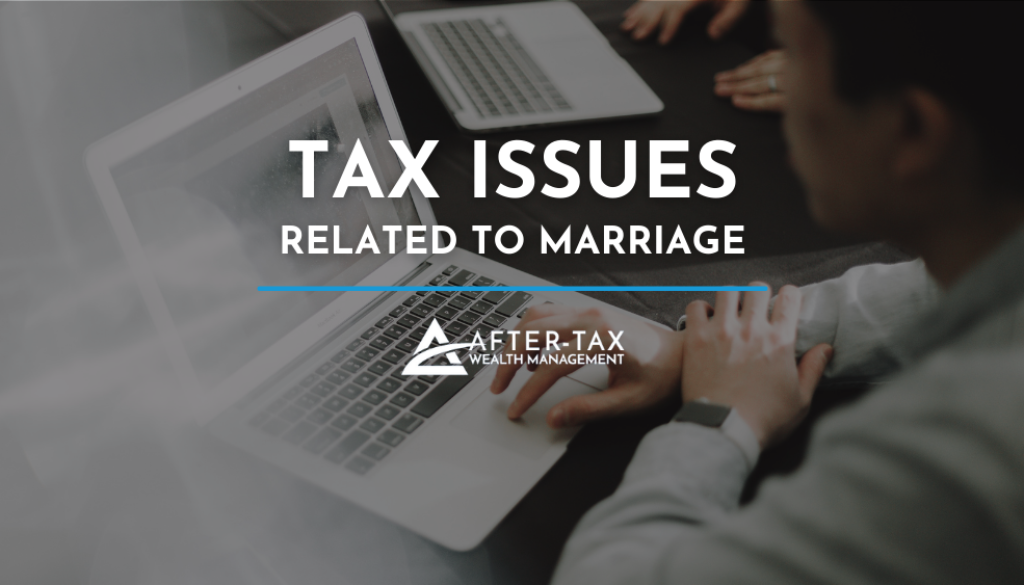Tax Issues Related to Marriage
What are tax issues related to marriage?
If you’re married (or about to be married), financial planning is certainly important. It’s also important for you to be aware of the income tax ramifications of your decisions. Although there are a number of tax issues related to marriage, you should pay particular attention to your selection of an income tax filing status. Thorough familiarity with the filing status rules applicable to married couples requires some knowledge of the rules for innocent spouse relief and injured spouse claims. Along with filing status, married couples might wish to know how to perform a second income analysis, which measures the after-tax benefit of both spouses working.
Same-sex marriages are now recognized by every state and the federal government. However, for federal tax purposes, marriage does not include registered domestic partnerships, civil unions, or similar formal relationships recognized under state law.
Why is filing status so important?
Your filing status is important because it determines, in part, the deductions and credits available to you, the amount of standard deduction that you may be entitled to, and your correct amount of tax. Therefore, you need to know which filing statuses are available to you and which one will best fit your needs. There are five possible filing statuses:
- Single
- Married filing jointly
- Married filing separately
- Head of household, or
- Qualifying widow(er) with dependent child
For tax purposes, whether you’re considered married or unmarried depends on a number of rules and your legal status as of the last day of the tax year.
What is innocent spouse relief and what are the rules for injured spouse claims?
Although many married couples opt to file their tax returns jointly, it is wise for you to become familiar with both the advantages and disadvantages of joint filing. Generally speaking, if you sign a joint return, you take full responsibility for the accuracy of the information contained in your return. Therefore, if your spouse intentionally underreports his or her income, you, too, could be held liable if the IRS sends a deficiency notice with accompanying interest and penalties.
In some cases, however, you can be relieved of responsibility for your spouse’s errors. This relief is known as innocent spouse relief. If you file a joint tax return, it’s also possible that the entire tax refund due on your return will be used to offset certain debts of your spouse, including student loans, taxes, and child support arrearages. Because it may be inequitable for you to lose your portion of the tax refund simply because your spouse owes money, the IRS allows you to file an injured spouse claim (in some cases) to claim your money.
What is a second-income analysis?
Another decision facing many married couples today is whether both spouses should work outside of the home. This decision often arises when a couple has children or when a retiree collecting Social Security considers a re-entry into the workforce. If you wish to consider whether a second income is advisable, you need to consider the personal ramifications, as well as the financial and tax aspects of your decision. A second-income analysis involves an evaluation of the net benefit derived from a second income, with a particular emphasis on the tax cost associated with the second income.
Content in this material is for general information only and not intended to provide specific advice or recommendations for any individual. All performance referenced is historical and is no guarantee of future results. All indices are unmanaged and may not be invested into directly.
The information provided is not intended to be a substitute for specific individualized tax planning or legal advice. We suggest that you consult with a qualified tax or legal professional.
LPL Financial Representatives offer access to Trust Services through The Private Trust Company N.A., an affiliate of LPL Financial.
This article was prepared by Broadridge.
LPL Tracking #1-595952




